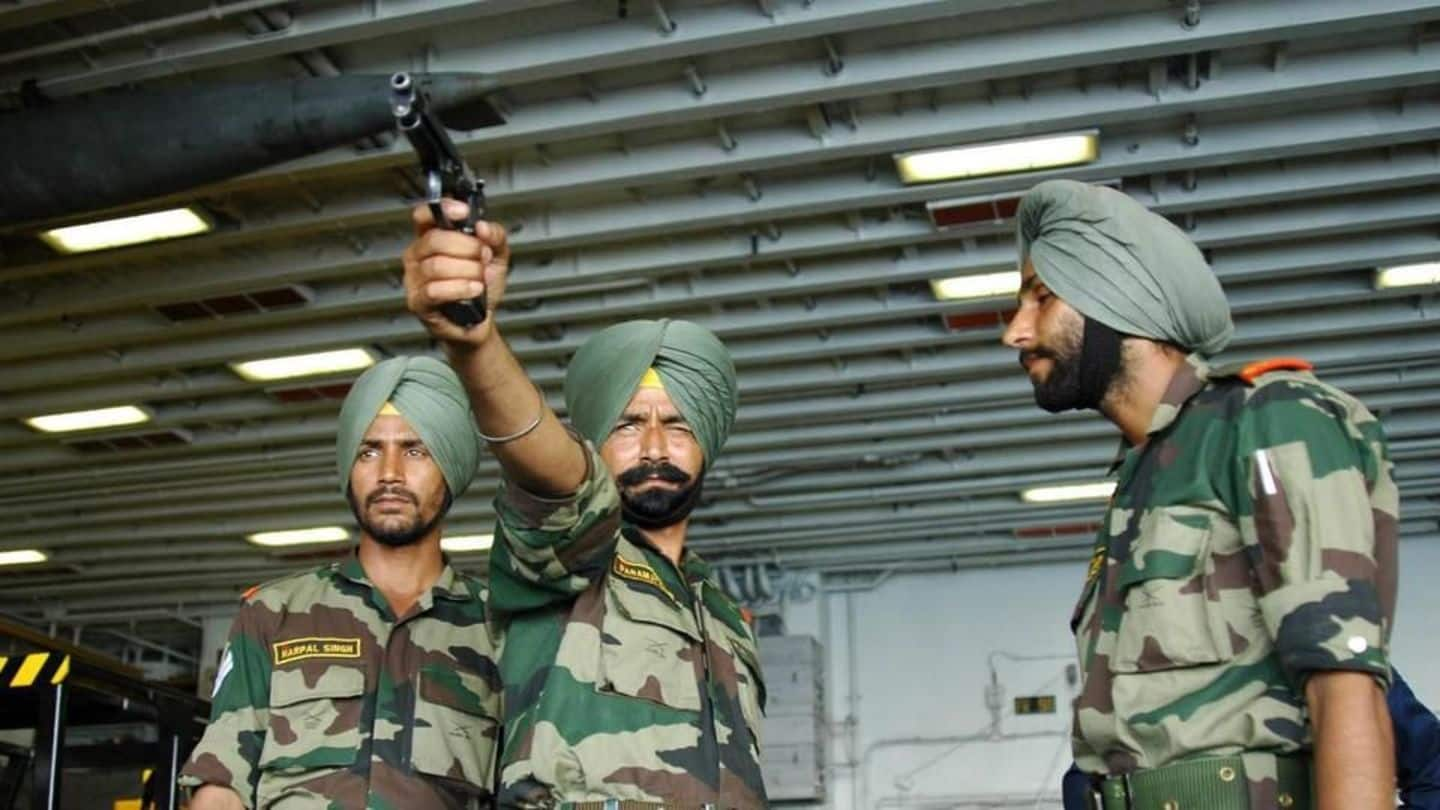
Surgical strikes: Army major says return most dangerous part
What's the story
The Indian Army's surgical strikes across the LoC last year took place at a rapid pace, said the major who led the daunting mission.
However, the return from Pakistan-occupied Kashmir was the most difficult part because Pakistani troops fired bullets close enough to whistle past the ears of Indian soldiers.
The revelations were made in a new book by Shiv Aroor and Rahul Singh.
Uri revenge
Soldiers from units attacked at Uri played major role
In the book 'India's Most Fearless: True Stories of Modern Military Heroes,' the Indian army major who led the operation is referred to as Mike Tango.
Major Tango revealed that for the revenge strike, the army selected soldiers from units who suffered losses in the Uri attack.
These troops manned border posts and provided terrain intelligence to the Ghatak platoon conducting the surgical strikes.
Quote
Why using Uri troops was a smart idea
"Tactically, this was a smart move- few knew the lay of the frontier land better than they did. But there was another astute reason. Involving them in the mission would at least begin to lay the ghosts of Uri to rest," wrote Aroor and Singh.
Planning
How the surgical strikes were planned
The target list for the surgical strikes was prepared by a "top-secret chain of command."
Officers of the Intelligence Bureau and the Research and Analysis Wing (R&AW) vetted the plans before presenting the final recommendation brief to the government.
Prior to the strikes, four Pakistani nationals, including two moles in Jaish-e-Mohammed terror group, provided information on the targets to Indian intelligence agencies.
Danger
Why the return from PoK was most dangerous part?
Major Tango chose every man in the Ghatak platoon and those having supporting roles, himself.
"Even the actual attack was not something that flustered the commandos. It was the return, an uphill trek to the LoC that was the truly daunting part," he said.
That's because the Indian troops' backs would face a barrage of gunfire from a strategically-well entrenched enemy.
Quote
Bullets whistled past Indian soldiers' ears
"At one point, the bullets were so close, they were whistling past our ears. There's a familiar put-put sound when rounds fly very close to your head," Major Tango said. "If I were a foot taller, I would have been hit many times over."